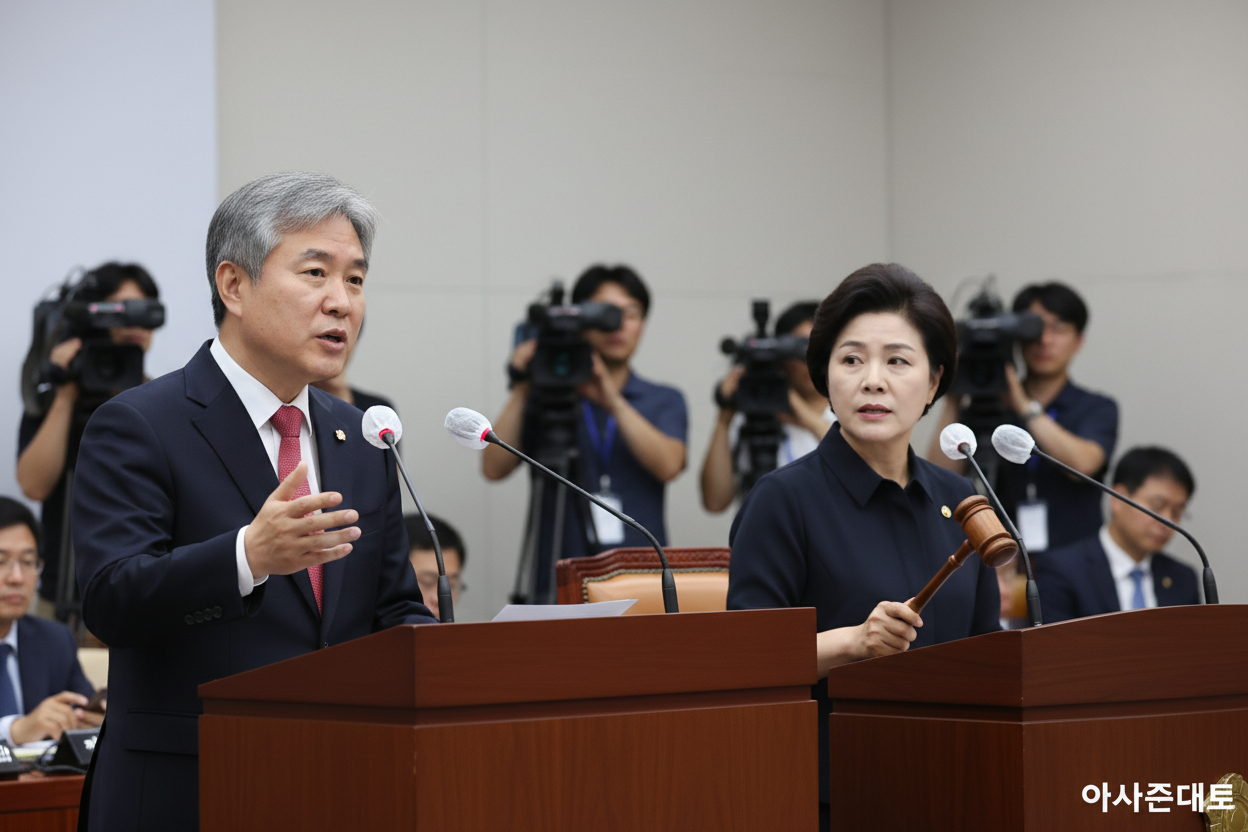Kim Geun-sik: Choe Min-hee is 'Insensitive,' Lee Jae-myung is the Epitome

Kim Geun-sik Criticizes Choe Min-hee as 'Insensitive'... 'Lee Jae-myung is the Epitome'
Kim Geun-sik, former professor affiliated with the People Power Party (PPP), has launched a scathing attack against Choe Min-hee, the chairwoman of the National Assembly's Science, Technology, Information, and Broadcasting Committee. Kim has labeled Choe as 'insensitive,' escalating his criticism by referencing her past actions. The anticipated fallout stems from Kim's pointed remarks about politicians from the Democratic Party of Korea (DPK), even mentioning current President Lee Jae-myung.
Kim pointed to former Justice Minister Cho Kuk as the originator of 'insensitivity,' criticizing, "They hunt others down mercilessly, yet ignore any criticism directed at themselves." He continued, "The epitome of insensitivity is President Lee Jae-myung," arguing, "They relentlessly attack others, yet remain unfazed and brazen in the face of their own corruption and wrongdoings." Kim's remarks are interpreted as a critique of the current state of South Korean politics, while also directly criticizing President Lee Jae-myung. PPP supporters have hailed Kim's statements as 'refreshingly blunt,' while DPK supporters have decried them as 'baseless slander.' Political circles are closely watching the potential impact of Kim's remarks on the political landscape.
Kim Geun-sik's latest remarks are expected to trigger considerable repercussions in the political sphere. The direct criticism of President Lee Jae-myung is viewed as an unusual move even within the PPP. The PPP is likely to leverage Kim's remarks to intensify its offensive against the DPK and President Lee Jae-myung. Conversely, the DPK has labeled Kim's statements as 'political defamation' and is considering legal action. Political analysts suggest that Kim's remarks could further destabilize the political situation, exacerbating the conflict between the ruling and opposition parties. There is also analysis suggesting that Kim's statements could galvanize the conservative base ahead of next year's general election.
This incident transcends a mere politician's remarks and serves as a stark illustration of the current state of South Korean politics. It is a complex entanglement of various issues, including extreme confrontation between the ruling and opposition parties, questions of politicians' integrity, and controversies surrounding media fairness. Addressing these issues requires self-reflection and effort from the political establishment, as well as critical scrutiny and participation from the public. The PPP must leverage this incident to pursue more rigorous reforms, and the DPK must also strive to restore public trust. The future trajectory of South Korean politics remains to be seen.
